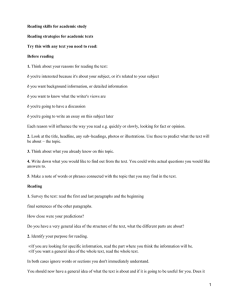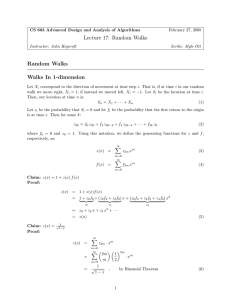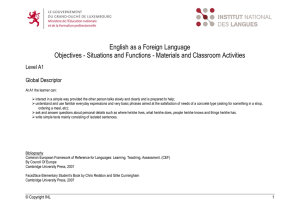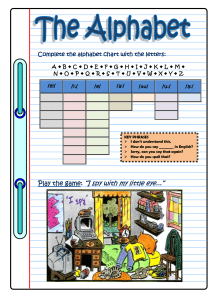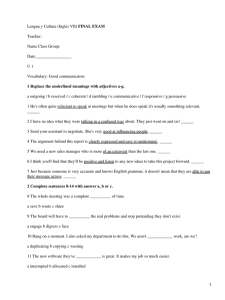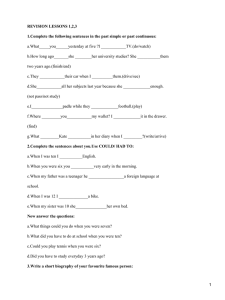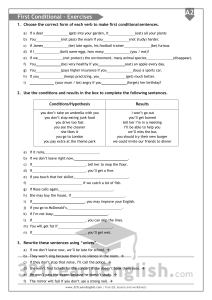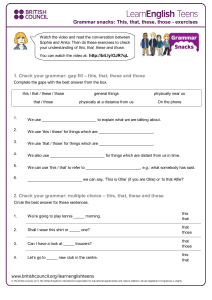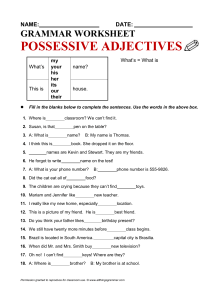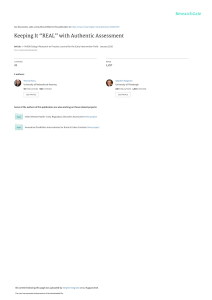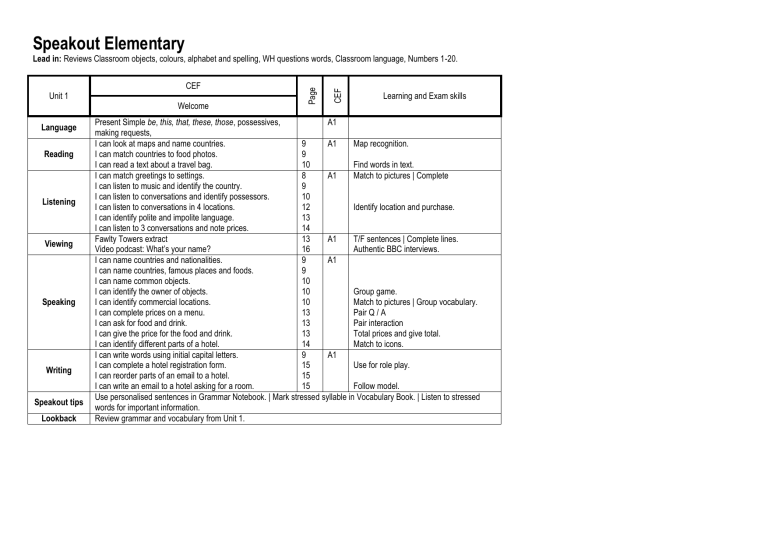
Speakout Elementary Language Reading Listening Viewing Speaking Writing Speakout tips Lookback CEF Welcome CEF Unit 1 Page Lead in: Reviews Classroom objects, colours, alphabet and spelling, WH questions words, Classroom language, Numbers 1-20. Learning and Exam skills Present Simple be, this, that, these, those, possessives, A1 making requests, I can look at maps and name countries. 9 A1 Map recognition. I can match countries to food photos. 9 I can read a text about a travel bag. 10 Find words in text. I can match greetings to settings. 8 A1 Match to pictures | Complete I can listen to music and identify the country. 9 I can listen to conversations and identify possessors. 10 I can listen to conversations in 4 locations. 12 Identify location and purchase. I can identify polite and impolite language. 13 I can listen to 3 conversations and note prices. 14 Fawlty Towers extract 13 A1 T/F sentences | Complete lines. Video podcast: What’s your name? 16 Authentic BBC interviews. I can name countries and nationalities. 9 A1 I can name countries, famous places and foods. 9 I can name common objects. 10 I can identify the owner of objects. 10 Group game. I can identify commercial locations. 10 Match to pictures | Group vocabulary. I can complete prices on a menu. 13 Pair Q / A I can ask for food and drink. 13 Pair interaction I can give the price for the food and drink. 13 Total prices and give total. I can identify different parts of a hotel. 14 Match to icons. I can write words using initial capital letters. 9 A1 I can complete a hotel registration form. 15 Use for role play. I can reorder parts of an email to a hotel. 15 I can write an email to a hotel asking for a room. 15 Follow model. Use personalised sentences in Grammar Notebook. | Mark stressed syllable in Vocabulary Book. | Listen to stressed words for important information. Review grammar and vocabulary from Unit 1. Language Reading Listening Viewing Speaking Writing Speakout tips Lookback Lifestyle CEF CEF Page Unit 2 Present simple, asking for information A1 I can read a website about online groups. 18 A1 I can read the time on digital and analogue clocks. 22 I can read brochures about tours in Hong Kong. 23 I can read information about a TV documentary. 24 I can read a profile on a pen pal website. 25 I can understand friends discussing online groups. 19 A1 I can understand 2 people talking about their routines. 20 I can listen to sounds and identify jobs. 21 I can understand time messages. 22 I can understand tourists choosing a tour. 22 I can understand a pair discussing household tasks. 25 I can read profiles by other learners. 25 I can view a programme about ski chalet workers. 24 A1 Video podcast | What’s your daily routine? 26 I can talk about various activities. 18 A1 I can say what I like / don’t like doing. 19 I can talk about daily routines. 20 I can ask questions and guess a job. 21 I can say what time I do routine activities. 22 When I don’t understand, I can ask a speaker to slow down 23 or repeat. I can role play asking for information about tours. 23 I can discuss my opinion about chalet work. 24 I can talk about routine household tasks. 25 I can discuss my routine household tasks. 25 I can complete a text about a TV presenter. 21 A1 I can write my own profile for a pen pal website. 25 Note collocations in Vocabulary book | Ask speaker to slow down or repeat. | Review grammar and vocabulary from Unit 2. Learning and Exam skills Match postings to groups. WH Qs. Categorise routine jobs. Read and evaluate. Complete table for the man. Y/N Qs | Complete table Choose times from chart. Mixed questions. Find likes/ dislkes. Match pen pals. Number jobs in sequence. | List problems. Authentic BBC interviews. verb / noun correlation WH questions WH and Y/N questions Group game. Listen, repeat polite intonation. Forming information questions. Pair work. Make list. State likes / dislikes. Read and discuss. Use model and notes. Language Reading Listening Viewing Speaking Writing Speakout tips Lookback People Frequency adverbs, Modifiers, have/has got, making arrangements. I can answer a quiz about friendship. I can compare 2 texts about large families. I can complete a text about a family. I can read programme information about a visit to Crete. I can read a printed invitation to a New Year party. I can understand personality descriptions. I can understand a phone call between 2 men. I can understand a phone call between a man and woman. I can understand a description of Hogmanay. Documentary about a visit to Crete. Video podcast : What do you like doing with friends/family? I can talk about personality types. I can say why I like / dislike someone. I can talk about people I know. I can ask and answer questions about families. I can talk about frequency using time expressions. I can use intonation to show interest. I can ask questions to make arrangements. I can role play making arrangements. I can say what I do on special occasions. I can describe and make notes about a special occasion. I can use apostrophes in contractions. I can write about 2 people in my family. I can write an invitation to a special occasion. I can reply to invitations from other learners. Using un- to form negative words. | Review grammar and vocabulary from Unit 3. CEF CEF Page Unit 3 Learning and Exam skills A1 29 30 31 34 35 28 32 32 35 34 A1 28 28 29 31 32 32 33 33 34 36 31 31 35 35 A1 A1 A1 Respond | Check key. Find numbers | Interpret. | Pair work Complete family tree. Topic. WH Qs. Y/N Qs | Check adjectives. Topics | T/F statements. | Evaluate. Make notes of arrangement. Topics | Key phrases | Topics | T/F statements | Complete sentences. Authentic BBC interviews. Using positive / negative adjectives. Using because to give reasons. List, evaluate. Draw family tree | Use for pair work. Mark positive, negative, neutral. Ask and answer. Use communication flowchart. Collocations. A1 is / has? Use model. Language Reading Listening Viewing Speaking Writing Speakout tips Lookback Places there is / are, can for possibility, shopping I can read an advertisement for microflats. I can read a text about an English village in Korea. I can understand a programme guide for a documentary. I can read a web posting about a favourite place. I can understand a conversation about microflats. I can understand statements with can/can’t. I can understand people asking for things in shops. I can understand comments on items in shops. I can understand a description of a place. Documentary about 5 great tourist sites. Video pod cast| Where do you live? 38 40 44 45 38 41 42 42 44 44 46 CEF CEF Page Unit 4 Learning and Exam skills A1 A1 A1 A1 WH Qs. WH Qs. WH Qs Sequence of topics. Listen for stress. Make notes in chart. too adjective, not adjective enough. WH Qs | Key Phrases. Listen, find #1. Complete extracts. Discuss your favourite places. Authentic BBC interviews. I can talk about rooms and furniture. 38 A1 I can ask and answer questions about flats. 39 Q & A. I can use prepositions to identify locations. 39 I can describe pictures. 39 I can tell my partner where to place furniture in my flat. 39 Communication task. I can talk about places in town and their functions. 41 I can ask / answer questions about locations of places in town. 41 Communication task. I can discuss where I buy things in town. 42 I can role play a shopping procedure. 43 Use flow chart. I can say no politely in shops. 43 I can describe famous tourist cities. 44 Match with pictures. I can describe my favourite place. 44 Use prompt Qs. I can complete an email describing a flat. 39 A1 there is / are I can use commas correctly when writing lists. 39 I can write sentences about what you can / can’t do in different places. 41 I can write a description of my favourite place. 45 Use model. Learn vocabulary by labelling things in your house. | Revise vocabulary by thinking about places in town. | When you say no in a shop, give a reason and say thanks, Review grammar and vocabulary from Unit 4. Language Reading Listening Viewing Speaking Writing Speakout tips Lookback Food CEF CEF Page Unit 5 countable | uncountable nouns a, an, some, any A1 how much | how many, quantifiers ordering in a restaurant I can understand and complete a short text about food. 49 A1 I can understand a text about a lifetime’s food. 50 I can understand a text about diets. 51 I can identify phrases from restaurants and Fast Food 52 outlets. I can read 2 menus and choose what I’d like. 53 I can understand a text about a famous chef. 54 I can understand and comment on a recipe. 55 I can understand 3 speakers talking about the content of 49 A1 their fridges. I can understand spoken numbers including fractions and 49 decimals. I can understand a restaurant order. 52 I can understand customers in a restaurant. 52 I can understand fast speech. 53 I can understand a chef cooking fish. 54 A2 I can understand a podcast about food likes and dislikes. 56 I can look at the contents of a fridge and identify the type of 48 A1 user. I can ask / answer questions about the food in my fridge. 48 I can talk about my usual diet. 48 I can talk about containers for food, etc. 49 I can compare my diet with the text. 50 I can talk about different quantities of countable nouns. 50 I can ask/answer questions about quantities. 51 I can do a class survey about diet. 51 I can discuss where I go for drinks, snacks and meals. 52 I can role play a restaurant order. 53 I can describe different kinds of dish. 53 I can discuss dishes we can produce with given ingredients. 54 I can write 3 or 4 paragraphs about my group’s diets. 51 A1 I can write the recipe for my special dish. 55 Label nouns as [C] or [U] in vocabulary books | Fast speech, sound linking.| Review grammar and vocabulary from Unit 5. Learning and Exam skills a/an, some, any Complete text with numbers.| Topics Identify paragraphs in text. Wh Qs. Gist | Unexpected detail Match to printed digits. List the order. Identify polite and impolite language. Select picture of order. Follow a recipe. Place instructions in order. Authentic BBC interviews. Pair work. Complete given sentences. also bar, roll etc. Personal experience. Pair information exchange. Use chart. Comment on diets. Pair interaction. Role play. Describe ingredients and preparation. Describe preparation of dish. Opinions Sequence of instructions. Language Reading Listening Viewing Speaking Writing Speakout tips Lookback The past was / were, Past simple +,-,?, regular and irregular verbs. I can read paragraphs about time twins. I can select which are true for me. I can ask / answer questions about an old friend. I can understand a text about Carlos Acosta. I can read a biography and sequence the paragraphs. I can understand if sentences are about the past or present. I can understand speakers talking about their weekend. I can identify phrases for showing interest. I can understand an extended interview. I can understand a programme about Carlos Acosta. 6061 61 61 64 65 59 62 62 65 64 CEF CEF Page Unit 6 A1 A1 A1 Learning and Exam skills Put paragraphs in sequence. Listen to check. Compare with partner. Discuss. Discuss using picture prompts. Write sentences. Mark stressed words. Sentence completion. Maintaining a conversation. A2 Comment on predictions. Places events in sequence. Correct a text. Authentic BBC interviews. I can understand a podcast about recent activities. 66 A2 I can talk about celebrities and their current activities. 58 A1 I can ask Y/N questions about the past. 59 Use prompts to form questions. I can ask / answer questions about life as a child. 59 Pair discussion. I can talk about days, dates, months and years. 59 Describe events on dates last year. I can describe what I did at the weekend. 62 Verb / noun collocation. I can use questions to maintain a conversation. 63 Maintaining conversation. I can maintain a conversation about a good / terrible 63 Group work. weekend. I can structure an interview with questions. 65 Role play. I can explain actions using because and so. 61 A1 I can write my biography in 100 words. 61 Using linkers. I can write a profile of a famous person. 65 Use Wordwise dictionary to find past tense forms of verbs. | Use questions, signs of interest and extra information to maintain conversations. | Review grammar and vocabulary from Unit 6. Language Reading Listening Viewing Speaking Writing Speakout tips Lookback Holidays Comparative, Superlative adjectives. Giving directions I can read about a London > Sydney bus journey. CEF CEF Page Unit 7 Learning and Exam skills A1 70 A2 Read Introduction: WH Qs. Search for answers to my questions. Correct the errors. Find sites on a map. Check answers. Pre-viewing activity. Organize text into 4 paragraphs. Listen for answers. Evaluate. Check answers to Qs. Draw route on a map. Complete dialogue. What do they omit? Use notes. Match places / descriptions. | Complete extracts from documentary. Authentic BBC interviews. Adjectives and opposites Pair work Use prepared notes. Use notes. Work in pairs. Find examples in dialogue. Pair interaction. I can find errors in a written text. 71 I can read a leaflet about sites in Brighton. 72 I can read about a documentary film. 74 I can read a text about Rimini. 75 I can understand a man and woman doing the quiz. 69 A2 I can understand an interview with an Ozbus passenger. 71 I can understand someone giving directions. 72 I can understand 2 students talking about Rimini. 75 I can understand a documentary about Buenos Aires. 74 A2 I can understand a video podcast of people talking about their holidays. 76 I can comment on different means of transport. 68 A1 I can complete a short quiz about travel preferences. 68 I can describe a good/bad holiday. 69 A2 I can plan a long bus journey. 71 I can use question intonation to ask for confirmation. 72 I can role play asking for and giving directions. 72 With a partner, I can prepare to describe a town / city. 75 I can write notes on aspects of good/bad holidays. 69 A2 Use Q prompts. I can write questions about the Ozbus journey. 70 Use word prompts. I can write 4 sentences about my last holiday. 71 Peer check and correct. I can write an article about a town / city. 75 Use model. Use question intonation to ask for confirmation. | Use incomplete repetition to ask for confirmed detail. | Use stress to correct a message. Review grammar and vocabulary from Unit 7. Language Reading Listening Viewing Speaking Writing Speakout tips Lookback Now Present Continuous , Present Continuous vs. Present Simple | recommending I can understand sentences about photos. I can read 2 blogs describing activities. I can understand reference pronouns in sentences. I can understand extracts from articles about celebrities. I can understand two short stories contrasting habits and now. I can read film posters and recommend a film. I can understand programme information about a festival. I can understand a review of an event in Edinburgh. I can understand a description of a film star. I can understand a radio programme. I can understand someone recommending a film. I can understand a description of an event. I can understand a documentary about a music festival. I can understand a podcast about film actors. I can describe a picture of people doing things. I can describe a film star so my partner can guess. I can describe the clothes I wear for different activities. I can answer questions about the films I like. I can express opinions about different types of film and give reasons. I can recommend a film to a partner and give reasons. I can discuss my taste in music. I can describe my experience of an event. CEF CEF Page Unit 8 Learning and Exam skills A1 78 79 79 80 81 83 84 85 80 80 81 85 84 86 79 80 81 82 82 83 84 85 A1 Which are true for you? Add missing sentences. Match to photos. A2 A1 A2 A2 A2 Pair asks for information about films. Pre-viewing task. Place topics in sequence. Choose star from pictures. Identify topic. | What do the speakers like? Key phrases. Listen for key phrases. T/F statements. | Complete extracts. Authentic BBC interviews. Pair interaction. Find differences. Guess from description. Use prompts. Compare answers. Pair discussion. In groups, use key phrases to ask about events. I can use reference pronouns to write longer sentences. 79 A2 I can write a blog about what I am doing. 79 Refer to two other students. I can make notes about an event I attended. 85 I can write a review of an event. 85 Use model and prepared notes. Practise English in your head. Think about what you are doing. | If you don’t know a word, describe what it means. | Sound more natural by linking sounds between words. | Review grammar and vocabulary from Unit 8. Language Reading Listening Viewing Speaking Writing Speakout tips Lookback Transport Articles: a/an, the, no article | Modals: can/can’t, have to, don’t have to | apologising I can read a text about using bikes in Paris. I can read an explanation for train delays. I can read pages from an online diary. I can identify linkers used in a long story. I can understand programme information about a documentary. I can understand a museum guide taking about transport. I can understand an apology for being late. I can understand a man talking about being late. I can understand the sequence of journey events. I can understand a passenger explaining a problem. I can understand a documentary about airports. I can understand people talking about journeys. I can talk about using different means of transport. I can discuss problems with transport ideas. I can discuss travelling in cities. I can discuss using bikes or cars. I can argue for bikes or for cars. I can discuss using Citybikes in my town. I can discuss tourist travel cards in different cities. CEF CEF Page Unit 9 Learning and Exam skills A2 90 92 92 93 94 88 92 92 94 95 94 96 88 89 90 90 90 91 A2 Write questions | T/F statements Summarise each in a sentence. Discuss function of different linkers. A2 Pre-viewing task Topics | Problems with transport ideas. Evaluate responses to apologies. Topic | Compare with diary. Topic | Key phrases A2 A2 Topics | Summary sentences. Authentic BBC interviews. verb / noun collocations Giving reasons. Giving reasons for opinions. Giving reasons for opinions. Pair interaction. | Complete chart.| Group discussion. Give reasons. Role play. Using linkers. I can explain why I am late for an appointment. 92 I can role play apologies in formal / informal language. 92 I can tell a long story about being late. 93 I can discuss flying and airports. 94 I can evaluate travel problems. 95 I can role play explaining a travel problem. 95 Pair Role play I can write a long story explaining why I was late. 93 A2 Use prepared notes. I can write an email to a friend reporting a travel problem. 95 Use model. Write short phrases after nouns in your Vocabulary Book showing use of articles. | Use your dictionary to find syllable stress in words. Mark these in your Vocabulary Book. | Use linkers when telling a long story. | Review grammar and vocabulary from Unit 9. Language Reading Listening Viewing Speaking Writing Speakout tips Lookback The Future be going to, would like to, will, might, won’t, Desires / Intentions | making suggestions I can understand a newspaper article about lottery winners. I can read survival advice. I can read an article about spending time with friends. I can complete a weather forecast. I can read programme information about weather. I can understand a radio interview with the winners. I can understand 2 conversations. CEF CEF Page Unit 10 Learning and Exam skills A2 98 100 102 104 104 98 103 A2 Discuss use of winnings. Pair interaction. Select best ideas. Weather adjectives. A2 Topic | Evaluate Identify decisions.| Key phrases | Responses to suggestions. Check completed reading text. Key phrases. WH Qs, M/C Qs. Authentic BBC interviews. Verb / noun collocations Complete chart. Report to class. I can understand a weather forecast. 104 I can understand people talking about weather. 105 I can understand a programme about extreme weather. 104 A2 I can understand people talking about ambitions. 106 I can talk about plans. 99 A2 I can do a survey about plans for this weekend, next week 99 and next year. I can discuss results of different situations. 100 get + complement I can talk about a picture. 101 Speculation I can discuss items useful in a crisis. 101 Select and explain. I can ask my friends what they’d like to do. 103 Complete chart. I can role play suggesting activities. 103 Pair phone conversation. I can talk about different types of weather. 104 Use pictures. I can ask my partner about weather preferences. 105 I can complete the beginning of a story and finish the story. 101 A2 too, also, as well I can suggest the best time to visit my country. 105 Writing on message board. Memorising tip | Find out about uses of get. | Use formal and informal adjectives | Review grammar and vocabulary from Unit 10. Language Reading Listening Viewing Speaking Writing Speakout tips Lookback Health should / shouldn’t, adverbs of manner, offering help I can read an article about cold cures. I can read and complete a quiz about healthy living. I can read two pages from Julie’s diary. I can read an article about helping people. I can read information about the Two Ronnies. I can understand a radio programme about illnesses. I can listen to situations and offer to help. I can understand a customer talking with a pharmacist. I can understand a comedy sketch. I can understand people talking about being healthier. I can give health advice. I can describe how well I can do things. I can thank people for their help. I can talk about health carers and what they do. I can say where I’d go for health care. I can write an interesting story using adverbs. I can write my health diary for a weekend. I can write advice on a health message board. Note spelling / sound contrasts | How to offer help | Review grammar and vocabulary from Unit 11. 109 110 111 112 114 108 113 115 114 116 109 111 113 114 115 111 111 115 CEF CEF Page Unit 11 A2 A2 A2 A2 Learning and Exam skills Match ideas to visuals. verb / noun collocation Evaluate / Discuss WH Qs Make detailed notes in chart. Respond to situations. Key phrases. Describe situation and actions. Authentic BBC interviews. A2 A2 Role play Vocabulary. Dealing with different problems. Use prompts and pictures. Use model. Respond to question messages. Language Reading Listening Viewing Speaking Writing Speakout tips Lookback Experiences Present Perfect, Present Perfect vs. Past Simple telephoning I can read a holiday postcard. 119 I can read an article about a stunt double. 120 I can read about shark therapy. I can understand people talking about activities. 118 I can understand 3 phone calls. 122 I can listen to telephone numbers and write them. 123 I can understand a man talking about a frightening experience. 125 I can understand a documentary about shark therapy. 125 I can understand people talking about things to do in London. 126 I can describe outdoor activities. 118 I can talk about my experiences. 119 I can ask about my partner’s activities. 121 I can say how I feel about experiences. 121 I can describe life problems. 122 I can talk about animals I’m afraid of. 124 I can write a holiday postcard to my class. 119 I can prepare notes for a conversation. 123 I can write a story about a frightening experience. 125 Find patterns in past participle forms | Say telephone numbers | Review grammar and vocabulary from Unit 12. CEF CEF Page Unit 12 Learning and Exam skills A2 A2 Layout | Key phrases T/F statements A2 Complete chart. / repeat Topic | Relationship | Complete extracts. Key phrases A2 Correct mistakes | Discuss Authentic BBC interviews. A2 verb / noun collocations A2 Ask / answer Pair interaction. Discuss Discuss fearful situations Guess the holiday place. Role play Use notes
